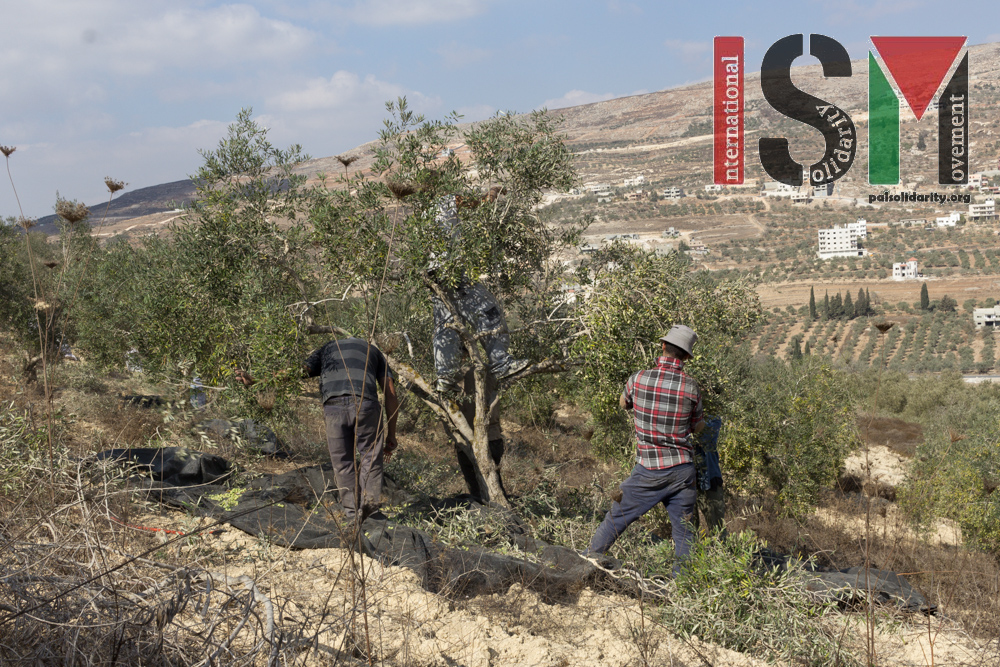Tag: Farmers
-
Susya faces demolition for the eighth time
27th February 2017 | International Solidarity Movement, al-Khalil team | Susya, occupied Palestine The village of Susya in the south Hebron hills faced complete demolition again yesterday as the Israeli court, and the villagers, waited for the Israeli government to announce its plan for demolition. The Israeli government asked the court for a 48 hour…
-
Assira, surrounded on all sides
Assira al Quiblya is a West Bank village up on a hill between Huwwara and Nablus. But unfortunately, it is not sufficiently uphill enough to be free and safe from the Yitzhar settlement. This settlement, one of the most active in assaults, makes life more and more difficult for the Palestinian inhabitants. For many years…
-
Protective Presence at Burin olive harvest
24th October 2016 | International Solidarity Movement, Nablus-team | Burin, occupied Palestine Today, international activists joined members of the Najjar family from the village of Burin to harvest their olives and provide a protective presence should settler colonists or Israeli forces attempt to attack and disrupt the harvesting. Thankfully, there were no violent incidents todayand the…


